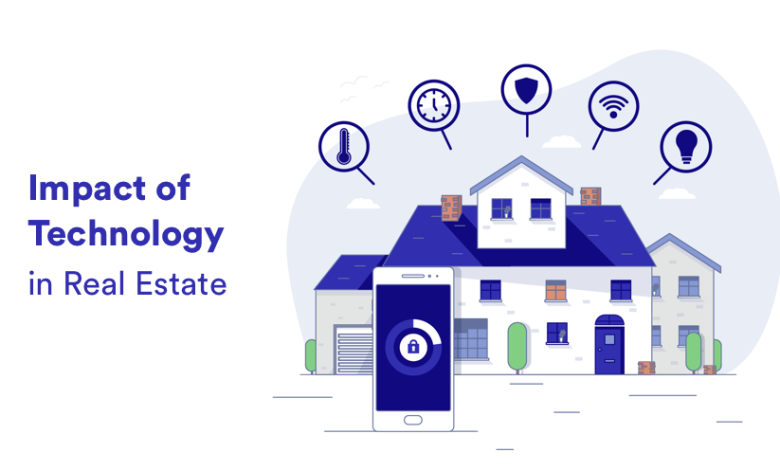
Technology and its Impact on the Real Estate Industry
Introduction
The real estate industry has been an essential part of human civilization for centuries. Over time, advancements in technology have revolutionized the way this industry operates. From property listings to virtual tours, technology has streamlined processes, enhanced customer experiences, and opened up new possibilities for real estate professionals. In this article, we will explore the profound impact of technology on the real estate sector, with a specific focus on real estate app development.
The Digital Transformation of Real Estate
The digital revolution has touched every aspect of our lives, and the real estate sector is no exception. The industry has undergone a massive transformation, thanks to cutting-edge technologies and innovative real estate applications. These digital tools have redefined the way properties are bought, sold, and managed.
Online Property Listings
Gone are the days of flipping through newspapers or visiting numerous properties physically. Real estate apps and websites have simplified property searches by offering comprehensive online listings. Users can now filter properties based on location, price range, amenities, and other crucial factors, saving time and effort.
Virtual Tours and 3D Visualization
One of the most significant advancements in real estate technology is the integration of virtual tours and 3D visualization. With real estate apps, potential buyers can explore properties remotely through interactive virtual tours. This feature has not only enhanced convenience but has also improved the decision-making process for buyers.
Data Analytics for Informed Decisions
Data is the backbone of the real estate industry. Technology has enabled real estate professionals to gather and analyze vast amounts of data to make informed decisions. From market trends to property valuations, data analytics plays a pivotal role in optimizing investments and maximizing returns.
The Rise of Real Estate Apps
As smartphones became ubiquitous, real estate apps emerged as a game-changer in the industry. These mobile applications have revolutionized how buyers, sellers, and agents interact and transact in the real estate market.
Convenience at Your Fingertips
Real estate apps bring the entire property market to the user’s fingertips. Buyers can easily browse through properties, contact agents, schedule visits, and even negotiate deals through these apps. Similarly, sellers can manage listings and track potential buyers effortlessly.
Customization and Personalization
Modern real estate apps leverage artificial intelligence and machine learning algorithms to provide personalized property recommendations. These apps analyze user preferences and behavior to present relevant property options, making the house-hunting process more efficient and enjoyable.
Paperless Transactions
Real estate transactions have traditionally involved extensive paperwork and documentation. Real estate apps have reduced the paperwork burden by facilitating digital document signing and secure online transactions. This not only speeds up the process but also minimizes the risk of errors.
Read More : Advantages of Flutter Development for Mobile Apps
Blockchain Technology in Real Estate
Blockchain technology has gained traction in various industries, and real estate is no exception. Its unique attributes offer a myriad of benefits to the sector.
Enhanced Security and Transparency
Blockchain’s decentralized nature ensures that data remains secure and tamper-proof. This is particularly crucial in real estate transactions, as it mitigates the risk of fraud and increases trust between parties involved.
Smart Contracts for Efficient Deals
Smart contracts, powered by blockchain, allow for automated and self-executing agreements. Real estate deals can be streamlined using smart contracts, as they eliminate the need for intermediaries and ensure faster and more reliable transactions.
Fractional Ownership Opportunities
Blockchain technology enables the tokenization of real estate assets, making fractional ownership feasible. Investors can buy and trade fractions of properties, increasing liquidity and accessibility in the real estate market.
The Role of Artificial Intelligence (AI)
Artificial Intelligence has become a driving force behind the digital transformation of the real estate industry, reshaping how properties are marketed, managed, and evaluated.
AI-Powered Chatbots
AI-powered chatbots have revolutionized customer support in real estate. These virtual assistants can handle inquiries, provide property information, and even schedule visits, ensuring prompt and efficient communication.
Predictive Analytics for Market Trends
AI-driven predictive analytics analyze vast amounts of data to forecast market trends accurately. This empowers real estate professionals to make strategic decisions and stay ahead in a dynamic market.
Property Management Automation
AI-powered tools streamline property management tasks, such as rent collection, maintenance scheduling, and tenant screening. This automation saves time, reduces errors, and allows real estate investors to focus on strategic planning.
The Impact of Augmented Reality (AR) on Real Estate
Augmented Reality has emerged as a transformative technology, particularly in the real estate industry, by providing immersive experiences and visualization.
AR-Based Property Showcasing
AR applications allow buyers to visualize properties realistically. By overlaying digital elements on the physical environment, potential buyers can assess how furnishings and renovations would look, aiding in decision-making.
Virtual Staging for Enhanced Appeal
AR-based virtual staging enables real estate agents to showcase properties with different styles and layouts, attracting a broader range of potential buyers and reducing the need for physical staging.
Renovation Planning and Design
AR facilitates renovation planning by letting homeowners visualize design changes before implementation. This technology helps in estimating costs, optimizing resources, and achieving desired outcomes.
Future Trends and Challenges
As technology continues to evolve, the real estate industry will experience new trends and face unique challenges.
Internet of Things (IoT) Integration
IoT devices in properties can provide valuable data on energy consumption, security, and maintenance. Integrating IoT with real estate apps will allow users to monitor and control their homes remotely.
Cybersecurity Concerns
With increased reliance on technology, the real estate sector will face cybersecurity challenges. It is crucial to safeguard sensitive information and protect against data breaches and hacking attempts.
Ensuring Inclusivity
As technology advances, it is essential to ensure inclusivity for all users. Real estate apps should be user-friendly, accessible, and accommodating to diverse needs.
Conclusion
Technology has significantly impacted the real estate industry, ushering in a new era of convenience, efficiency, and innovation. From real estate apps to blockchain technology, AI, and AR, these digital tools have transformed how properties are bought, sold, and managed. As the industry continues to evolve, embracing emerging technologies will be the key to staying ahead in a dynamic market.









